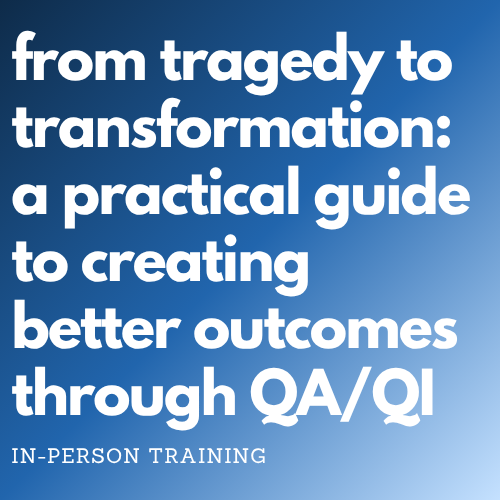What does it truly mean to get it right in 9-1-1—and how do we make sure we do? This 8-hour course offers a comprehensive and heartfelt guide to building, sustaining, and improving effective Quality Assurance and Quality Improvement (QA/QI) programs in emergency communications centers.
Grounded in the real-life lessons learned from the Denise Amber Lee tragedy, this class weaves together the “why” behind QA with the “how” of implementation. Participants will explore the evolution of the national QA/QI standard, the critical elements of successful programs, and the strategies to align call review processes with agency goals, policy, and training.
From creating scoring forms and delivering impactful feedback, to developing a culture of accountability, support, and transparency, this course doesn’t just check boxes—it inspires change. Through call reviews, hands-on exercises, and group discussion, students will walk away with a renewed understanding of why QA matters—not just for compliance, but for lives.
Whether you're building a program from the ground up or refining an existing one, this course is your roadmap to making every call count.
- Explain the purpose and importance of QA/QI in emergency communications, including its evolution and connection to high-profile incidents such as the Denise Amber Lee case.
- Describe the foundational components of an effective QA/QI program, including standard alignment, call review processes, scoring forms, and performance metrics.
- Apply practical strategies for delivering constructive, consistent, and motivational feedback that supports professional growth and fosters a culture of accountability and continuous improvement.
- Develop a customized action plan to implement or enhance a QA/QI program that aligns with agency goals, policies, and training while promoting transparency and operational excellence.
- Practice evaluating multiple real-world 9-1-1 calls through guided QA scoring exercises to build consistency, confidence, and accuracy in call review.

